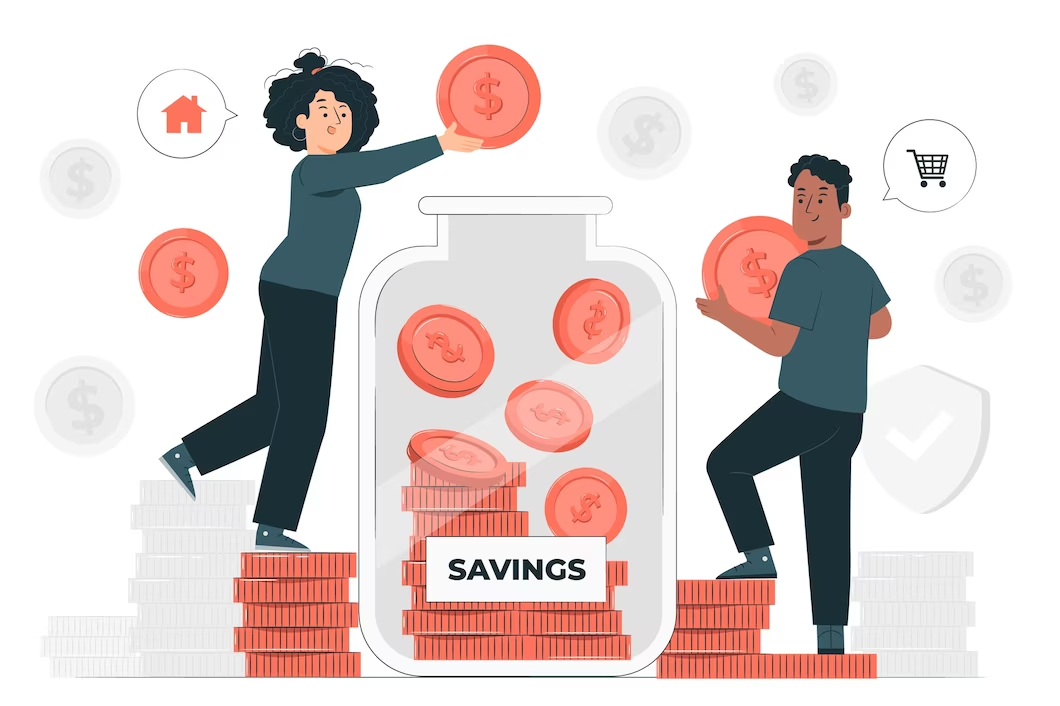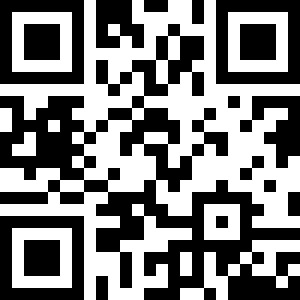he Federal Reserve has been on a mission to curb the decade-high inflation. Thus, it has continuously increased the federal funds rate to achieve this goal. Lately, the Fed raised the rate by 0.25% on February 1, 2023, pushing the rate to 4.50%-4.75%. Although this hike was a mere bump compared to the 0.75% increase in September 2022, the Fed is still keeping its foot on the accelerator, with more rate increases expected soon.
This interest rate hike will have far-reaching effects since it will create a domino effect on the economy. People will be less inclined to take out loans because of the higher interest rates and are more likely to put their money in savings. As a result, people will start spending less, resulting in a decline in the demand for goods and services, eventually assisting in controlling inflation.
But how will the fed rate increase impact your bank account? Let's figure it out.

What Is the Federal Funds Rate?
Before diving into the main topic, let's take a moment to understand about federal funds rate and how it works.
The federal funds rate is the interest rate banks charge each other for overnight loans. Since banks operate using public money, the Federal Reserve requires them to maintain a specific reserve requirement to stabilize the banking system. Banks play a crucial role in the economy, so their failure can create a ripple effect that may crash the economy. That's why the Federal Reserve closely monitors banks and mandates them to maintain specific daily reserve requirements.
If a bank can't meet the daily reserve requirements, it can borrow overnight loans from another bank at the Fed rate set by the federal reserve.
How Does the Fed Rate Impact Bank Accounts?
The fed rate significantly impacts the bank’s interest rate. When the fed rate increases, it becomes expensive for banks to borrow money, and they ultimately pass that cost onto their customers in the form of high-interest rates on loans. Since borrowing cost is high, they also give out higher interest rates on saving accounts to attract more deposits.
On the other hand, when the fed rate decreases, it becomes cheaper for the banks to borrow overnight loans. Thus, they charge low-interest rates on loans and give out low interest on savings.
How Does an Increase in Fed Rate Impact Your Bank Account?
Fed rate increase means high-interest rates charged by banks on your accounts. Here's how it impacts your bank account:
Savings Account
With an increased fed rate, savers are the clear winners as it typically leads to higher interest rates on savings accounts. This is because, since the borrowing cost is high, the bank opts for providing higher interest on the savings accounts to attract more deposits. Thus, you can earn more on your savings accounts, such as checking accounts, high-yield savings accounts, certificates of deposit (CDs), and money market accounts, while keeping your risk low.

Currently, high-yield accounts offer an average interest rate of over 3%. However, some institutions may offer 4% or more rates, making it an attractive option for those looking to grow their wealth at low risk.
Mortgage
Even if the federal funds rate doesn't directly affect mortgage rates, it still indirectly impacts them. This is because mortgage rates tend to follow the yield on the 10-year Treasury note, which is affected by the federal funds rate. Mortgage rates may increase if banks hike borrowing costs to maintain profit margins.
Also, read Interest Rates Are Rising, But Are Still Historically Low
Credit Cards
As credit card interest rates are variable and often tied to the prime rate, the Fed rate significantly impacts them. Because credit card interest rates are already high, a further rise might put you in even more debt. Thus, you should pay off your credit card debt as soon as possible.

Personal Loans
Since the overall borrowing cost is high, personal loans can also be expensive. This can be especially true for unsecured personal loans, which don't require collateral and are riskier for lenders. If you have a fixed-rate personal loan, you may rest assured as it won’t be affected.
Auto Loans
Auto loans will likely increase with the fed interest hike. Since the interest hike makes borrowing more expensive, lenders may pass those costs to their borrowers. As a result, you may see higher monthly payments for auto loans.

Business Loans
Business loans are also highly impacted by the changes in the federal funds rate. It may become more costly for businesses to borrow money as interest rates rise. Significantly, the impact is most seen by small business loan borrowers since they are based on the prime rate. As the Fed has raised its fed rate, the SBA loans now have a double-digit percentage range for the first time in decades.
Student Loans
The impact of the Fed interest hike on your student loan payments largely depends on your loan type. The hike won't affect you if you have a fixed-rate student loan. But, if you have variable-rate student loans or thinking of taking out a new student loan, then chances are that the loan will be pricier.

Equity Loans
If you are considering taking home equity lines of credit (HELOC) to pay off your credit card debt, that’s a big no! HELOCs often have variable interest rates significantly affected by a Fed rate hike.
What Should You Do if the Fed Rate Increases?
Here are some steps to mitigate the impact of a Fed rate increase on your finances:
Save More
Since interest rates are high on the savings account, reduce spending and save more to take advantage of the situation. With the Fed planning further interest rate hikes, consider opening saving accounts or Certificates of deposits that offer high-interest rates. Monitor the market and take advantage of the best rates available. After all, a little extra interest can go a long way in growing your wealth!
Also, read The Best High Yield Savings Accounts For December 2022
Review Your Budget
Since we are switching to saving mode, reviewing your budget and identifying areas where you can spend less is essential. Also, putting off big-ticket purchases such as a home or car for a while is wise. In this situation, saving is more like investing; the interest rate for saving accounts is high. So, the more you save, the more you will earn.

Consider Fixed-Rate Loans
If you're considering getting a loan, it's best to go with a fixed rate rather than a variable one. Fixed-rate loans have a fixed interest rate for the life of the loan, which can provide more certainty and stability in your budget. Since the fed rate is likely to increase, it's wise to consider fixed-rate loans.
Build an Emergency Fund
An emergency fund is always a good idea, but it becomes even more critical during economic uncertainty. Aim to save at least three to six months' living expenses in a high-yield savings or money market account.

Pay off Credit Card Debt
If you have credit card debt, paying it off immediately is highly advisable. With the fed interest hike, credit card interest rates can be very high. So, you should pay off your debt so that you won’t pay high-interest rates that could break your bank.
Improve Your Credit Score
It’s crucial to check your credit report for errors and take steps to improve your credit score. If there is a thing that could help you secure cheaper loans during the interest hike, then it's your credit score. You can still get more affordable loans despite the pricy loan landscape if you have a high credit score.
Also read: What Are Credit Scores? How Do You Improve Them?
Conclusion
When the federal funds rate increases, banks increase their interest rates, which is good news for savers but not so great for borrowers. The increase won't affect you much if you have a fixed-rate loan. But, it will significantly impact variable interest loans such as credit cards and HELOCs. Also, putting off high ticket purchases is advisable since the interest rates are all-time high.
The fed rate increase can be a mixed bag depending on your financial situation. Still, keeping an eye on interest rates and making informed decisions about your savings and borrowing habits is essential.
References
- https://www.nerdwallet.com/article/finance/federal-funds-rate-rising-interest-rates#:
- https://www.cnet.com/personal-finance/credit-cards/advice/fed-vs-inflation-what-it-means-for-your-credit-card-balance/
- https://www.nytimes.com/2023/02/01/business/fed-rates-mortgages-credit-cards.html
- https://www.bankrate.com/loans/auto-loans/fed-rates-and-auto-loans/
- https://www.cnbc.com/2022/12/14/fed-rate-hike-pushes-business-loans-over-10percent-for-first-time-since-2007.html
- https://www.forbes.com/advisor/investing/fed-raises-interest-rates/
- https://www.nerdwallet.com/article/loans/student-loans/fed-rate-hike-student-loans#
- https://www.nerdwallet.com/article/banking/fed-rate-impact-bank-accounts
- https://fortune.com/recommends/banking/how-the-feds-rate-hike-impacts-your-saving-accounts/
- https://www.cbsnews.com/news/interest-rate-hike-federal-reserve-your-money-september-2022/
- https://www.cnbc.com/2022/09/21/fed-rate-hike-september-2022-.html
- https://www.federalreserve.gov/newsevents/pressreleases/monetary20230201a1.htm#:~
- https://www.cnbc.com/2023/02/01/fed-rate-decision-february-2023-quarter-point-hike.html
- https://www.nbcnews.com/business/economy/interest-rate-hike-federal-reserve-how-much-february-2023-rcna68267
.png)



